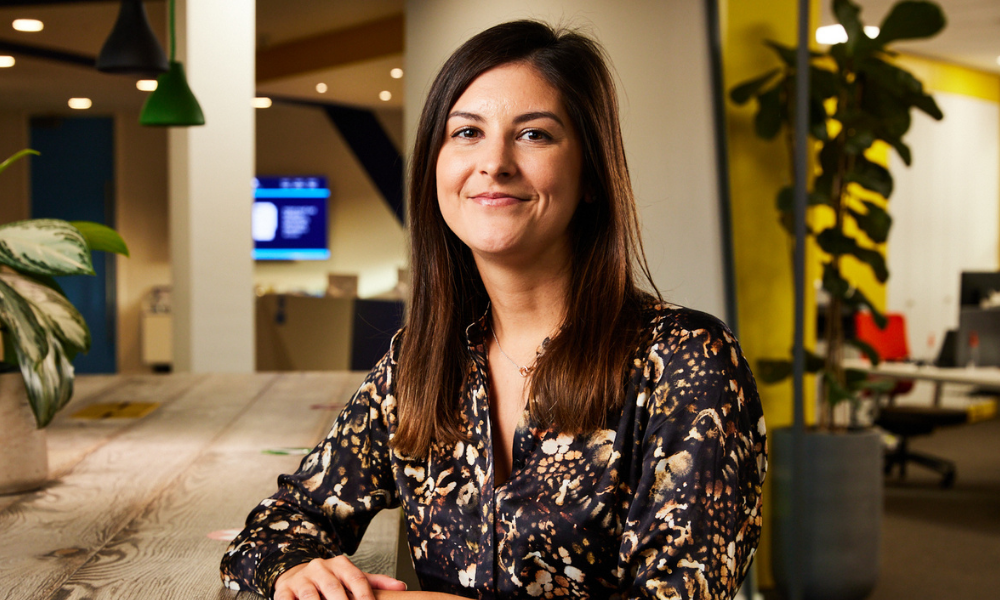AML specialist warns businesses to stay alert to a crime that accounts for almost £2 trillion globally

The amount of money laundered every year across the world is estimated to be about 3% of global GDP – that’s some £1.8 trillion - according to recent figures.
For its part, the UK has the dubious honour of being the second biggest money laundering country in the world, where an estimated £88 billion worth is cleaned by criminals every year.
No firms are immune, as the NatWest bank found to its cost last year, when it pleaded guilty at Westminster Magistrates’ Court after admitting it failed to comply with anti-money laundering regulations.
The omission saw almost £400 million of money laundered by one firm. Not that it should have been that hard to spot, given that the offending firm on one occasion deposited £700,000 in cash in black bin bags into one NatWest branch.
In another instance, a criminal gang reportedly deposited massive sums of cash across some 50 branches.
The bank was subsequently fined £265 million, although the sum would have been much bigger had NatWest not pleaded guilty, the judge on the case added.
Read more: NatWest pleads guilty in AML criminal proceedings
It may be a hard fact to swallow for the finance industry, but as Transparency International says “banks play a key role in facilitating money laundering and feature prominently in almost every major money laundering scandal”.
Spearheading the war against this global crime are regulators and fintech firms, among others. One such company is leading UK provider of anti-money laundering software, Smartsearch, which has developed a fully compliant AML verification service that can reputedly deliver business checks in less than three minutes.
Speaking to Mortgage Introducer, the firm’s newly appointed COO, Collette Allen (pictured), cautioned businesses against being lax with their anti-money laundering practices as criminals were becoming increasingly sophisticated.
“People are always surprised at how many fraudulent documents are in circulation - we see so many examples that look very legitimate.
“The legacy forms of verifying identity, such as collecting a passport or driving licence, served a purpose at the time, but as things always do, the environment has evolved, the technology has evolved, and it means that we need to stay at the forefront to be able to combat money laundering,” said Allen, who was the company’s youngest board member at age 30.
Companies such as Smartsearch provide alternatives to document verification and offer a “much more robust” system, verifying document information from Experian, Equifax and Dow Jones, which is much harder to forge, Allen said.
“It’s a lot more difficult to build up the long-term credit profile than it is to get, for example, a fake driver’s licence or passport from the dark web as an example.”
Read more: SmartSearch adds facial recognition to AML platform
However well intentioned, firms face additional challenges because money laundering regulations can be highly complex and companies sometimes fail to understand their level of exposure to these types of crimes.
One example are real estate agents, which are ultimately more exposed in terms of levels of risk as “they’re on the front line”, Allen noted.
The Russian invasion of Ukraine may have brought the issue of money laundering to the fore, but even before the conflict, UK governments have repeatedly come under proverbial fire for a perceived relaxed attitude towards oligarch money, especially when related to property acquisitions.
And it’s no small concern. According to Transparency International figures, there’s roughly £6.7 billion worth of questionable funds in property alone.
Asked if the current UK administration was doing enough to prevent the flow of illicit cash from this source, Allen said: “Responsibility is ultimately a collective one. We are a target. A lot of that has to do with the environment that we have on offer - any large city is exposed to money laundering, so London is obviously at the height of that.
“The UK has some of the most stringent regulations and a lot of the time we lead the way with anti-money laundering (measures), and we implemented the fifth money laundering directive when we were part of the EU.
“(But) the government needs to do more around taxpayers and British territories overseas, making sure that we’re removing as many privacy laws that mean that people can hide behind corporate structures, and they are working to do that, but these things take time.”



